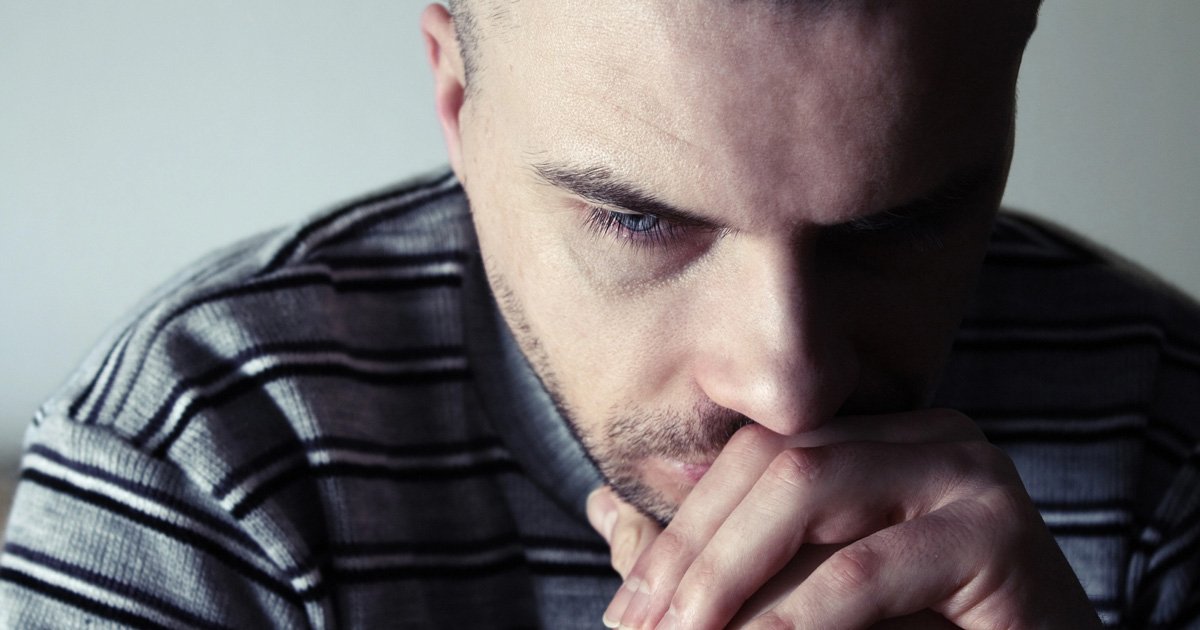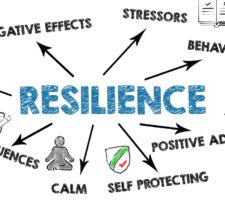Depression in Men
If someone asked me years ago what depression looked like, I probably would’ve rattled off the usual descriptions: sadness, tears, maybe someone unable to get out of bed. But what I didn’t know back then is that depression doesn’t always look like that—especially for men. For us, it’s often quieter, harder to pinpoint, and, let’s face it, something we don’t talk about enough.
I know this because I’ve been there. I’ve felt the weight, the emptiness, and the anger that came out of nowhere. I’ve lived through the days when everything felt like too much—and the nights when I didn’t know how to make it better. I’m writing this not just as someone who’s researched and learned about it, but as someone who’s walked this path and come out on the other side.
Let’s talk about depression in men: what it looks like, how to spot the signs, and what you can do about it.
Why Men’s Depression Often Goes Unnoticed
The first thing to understand about depression in men is that it doesn’t always look the way you think it will. For one thing, we’re taught from a young age to keep things bottled up. Be tough. Don’t cry. Don’t talk about feelings. So when depression hits, instead of asking for help, many of us turn inward. Or worse, we try to drown it out with work, alcohol, or risky behavior.
Society doesn’t help much either. There’s still a lot of stigma around men and mental health. Talking about feelings? That’s often seen as “weak.” So we don’t talk. And because of that, a lot of men end up suffering in silence, feeling like they’re the only ones dealing with this.
Signs of Depression in Men
Recognizing the signs is the first step toward doing something about it. But here’s the tricky part: depression in men can look very different from depression in women. It’s not always obvious. Here are some signs to watch for—whether it’s in yourself or someone you care about:
1. Anger and Irritability
For me, one of the first clues something wasn’t right was how easily I got angry. I’d snap at the smallest things. I wasn’t sad, at least not in the traditional sense, but I was frustrated all the time. That’s the thing—depression in men often comes out as irritability instead of sadness.
2. Withdrawal
There was a time when I started pulling away from everyone. I stopped going out, stopped answering texts, stopped showing up. It wasn’t that I didn’t care—I just didn’t have the energy. If a guy in your life is withdrawing like this, it’s worth checking in with him.
3. Physical Symptoms
A lot of people don’t realize how much depression can affect your body. For me, it was this constant exhaustion that I couldn’t shake, no matter how much I slept. Some days it felt like my body was carrying a hundred-pound weight. Other guys might have headaches, stomach problems, or just feel off physically without knowing why.
4. Risky Behavior
Some men deal with depression by trying to escape from it. That might look like drinking too much, gambling, or even throwing themselves into dangerous activities. It’s not that they want to hurt themselves—it’s more about numbing the pain or distracting themselves.
5. Changes in Routine
Looking back, I can see how much my routines changed when I was at my lowest. I stopped doing the things I used to love. My sleep was all over the place. Even getting out of bed felt like climbing a mountain.
Symptoms of Depression in Men
While signs are what you can observe on the outside, symptoms are what men might feel on the inside but not talk about. Here’s what depression can feel like from the inside out:
- Hopelessness: That sinking feeling that nothing will ever get better.
- Emptiness: For me, it wasn’t always sadness—it was more like a hollow, numb feeling, as if all the joy had been drained out of life.
- Difficulty Concentrating: I remember sitting at work, staring at the same email for what felt like hours, unable to focus.
- Anxiety: Sometimes, depression brings this underlying sense of dread or worry about everything, even things that don’t make sense.
- Thoughts of Giving Up: If it ever gets to this point, it’s a clear sign to reach out for help—immediately.
Why It’s Hard for Men to Ask for Help
I’ll be honest—asking for help was one of the hardest things I’ve ever done. For years, I told myself I didn’t need it. That I’d figure it out. That I was just stressed or tired or going through a rough patch. But deep down, I knew something wasn’t right.
Men often don’t seek help because we’re taught not to. We’re told to handle things on our own, to push through, to “be a man.” But the truth is, there’s nothing manly about suffering in silence. It takes real courage to admit you’re struggling and reach out for help.
My Journey with Depression
I didn’t wake up one day and decide to fix everything. It was more like a series of small steps. The first was admitting to myself that I wasn’t okay. Then, I opened up to a friend about what I was going through. From there, I started seeing a therapist. It wasn’t a quick fix, and it wasn’t always easy, but little by little, things started to change.
What surprised me most was how much better I felt just by talking about it. Getting those feelings out of my head and into the open took away a lot of their power.
If you’re reading this and thinking, “That sounds like me,” I want you to know that it’s okay to ask for help. It doesn’t make you weak. It makes you human.
How to Seek Help
If you’re ready to take the first step, here are some things that worked for me:
- Talk to Someone You Trust: Whether it’s a friend, a family member, or even a colleague, opening up can make a huge difference.
- Reach Out to a Professional: Therapists and counselors are trained to help. They won’t judge you—they’re there to listen and guide you.
- Start Small: Focus on small habits that make you feel better, like going for a walk, journaling, or even just getting out of bed and taking a shower.
- Join a Support Group: You’d be surprised how many men are going through the same thing. Connecting with others can be incredibly healing.
For Those Supporting a Man with Depression
If you’re trying to help a man in your life who’s struggling, the best thing you can do is be there. Don’t try to fix him or tell him what to do—just listen. Let him know you care, encourage him to get help, and remind him that he doesn’t have to go through this alone.
Further Reading
If you want to dive deeper into this topic, here are some books I highly recommend:
- “I Don’t Want to Talk About It” by Terrence Real – A powerful exploration of how men experience and cope with depression.
- “Lost Connections” by Johann Hari – A fascinating look at what causes depression and how to heal.
- “The Body Keeps the Score” by Bessel van der Kolk – A must-read for understanding how trauma affects mental health.
Final Thoughts
Depression in men is real, and it’s more common than you might think. If you’re struggling, please know that you’re not alone. There’s no shame in asking for help—it’s one of the bravest things you can do. You don’t have to have all the answers right now. Just take it one step at a time, and know that things can and will get better.
Sources Regarding Depression in Men
- World Health Organization (WHO) – Mental Health Data and Statistics: https://www.who.int/health-topics/mental-health
- American Psychological Association (APA) – Studies on Men and Depression: https://www.apa.org/topics/men-boys/depression
- National Institute of Mental Health (NIMH) – Guides on Depression Treatment and Support: https://www.nimh.nih.gov/health/topics/depression



